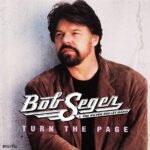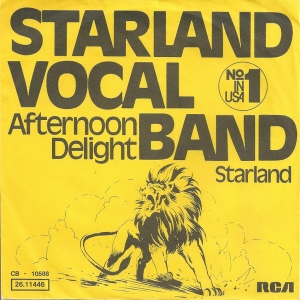 When Bob Seger released “Turn the Page” in 1973 as part of his Back in ’72 album, few could have predicted that this moody, reflective song would become one of the most enduring road anthems in rock history. A song about loneliness, fatigue, and the unglamorous side of life as a traveling musician, “Turn the Page” resonates far beyond the tour bus. It is a timeless meditation on alienation and perseverance, a sonic postcard from the endless highways of America that continues to strike a chord with listeners five decades after its creation.
When Bob Seger released “Turn the Page” in 1973 as part of his Back in ’72 album, few could have predicted that this moody, reflective song would become one of the most enduring road anthems in rock history. A song about loneliness, fatigue, and the unglamorous side of life as a traveling musician, “Turn the Page” resonates far beyond the tour bus. It is a timeless meditation on alienation and perseverance, a sonic postcard from the endless highways of America that continues to strike a chord with listeners five decades after its creation.
This 2500-word deep dive explores the origins of “Turn the Page,” its haunting musical architecture, the themes that make it universal, the legendary live performances that elevated it, and the song’s lasting legacy in rock culture.
The Origins: Life on the Road in the Early 1970s
To understand “Turn the Page,” one must first understand Bob Seger’s grueling life in the early 1970s. Before the Night Moves breakthrough that would make him a household name, Seger was a Midwestern workhorse. He spent much of the late ’60s and early ’70s crisscrossing the United States in a van with his band, The Silver Bullet Band, playing small clubs, opening for bigger acts, and struggling to gain national recognition.
Seger has often described this period as both formative and punishing. Touring in an era before luxurious tour buses and corporate sponsorships meant endless drives through the American heartland, sleeping in cheap motels, and eating whatever was available at gas stations. It was during one such trip—specifically a late-night drive through Iowa—that the seed for “Turn the Page” was planted.
According to Seger, the band stopped at a truck stop where their long hair and rock ’n’ roll appearance drew hostile stares from truckers and locals. Feeling judged and alienated, Seger retreated inward and began to capture the emotional weariness of life on the road. The song’s lyrics came together as a direct response to the experience of being both idolized and ostracized—famous enough to be noticed, but not famous enough to be insulated from everyday hostility.
Lyrics That Capture a Universal Experience
“Turn the Page” is both specific to Seger’s life and universal in its themes. The opening lines set the tone immediately:
“On a long and lonesome highway, east of Omaha
You can listen to the engine moanin’ out its one-note song…”
In just a few words, Seger places the listener in a desolate nighttime setting. The highway becomes a metaphor for the musician’s journey—endless, lonely, and repetitive. The “one-note song” of the engine underscores the monotony of travel, while the word “lonesome” carries emotional weight.
The second verse dives into the tension between performer and audience:
“And you always seem outnumbered, you don’t dare make a stand…”
Here, Seger captures the feeling of being an outsider in small-town America. Rock musicians in the early ’70s often faced suspicion and ridicule, particularly in conservative areas. Long hair, leather jackets, and the countercultural image invited judgment, making even a simple meal at a diner feel like a confrontation.
But the chorus shifts the focus inward:
“Here I am, on the road again
There I am, up on the stage
Here I go, playin’ star again
There I go, turn the page…”
The repetition mirrors the cycle of touring—drive, perform, leave, repeat. “Turn the page” functions as both a resignation and a mantra, a way to cope with the endless grind. Every show is another chapter in a book that never seems to end.
The Music: A Sonic Landscape of Loneliness
The haunting power of “Turn the Page” owes much to its arrangement. While Seger’s voice carries the emotional weight, the instrumentation provides the atmosphere. The most distinctive feature is Alto Reed’s mournful saxophone, which opens the song with a wailing line that perfectly evokes the sound of wind sweeping across an empty highway. Reed’s sax became so synonymous with the song that it remains one of the most recognizable intros in rock history.
The rest of the arrangement is deceptively simple: a gentle, minor-key guitar progression, subtle bass, and restrained drums. The music never overwhelms the vocals, instead creating a spacious sonic landscape where Seger’s storytelling can breathe. The production captures the mood of a late-night drive, where thoughts wander and time stretches.
Seger’s vocal performance is equally crucial. His voice, a gritty yet soulful baritone, communicates both weariness and determination. He doesn’t merely sing the lyrics; he inhabits them, giving listeners the sense that he has lived every word.
Live Performances: From Cult Favorite to National Anthem
Although “Turn the Page” first appeared on Back in ’72, it wasn’t until Bob Seger & The Silver Bullet Band released Live Bullet in 1976 that the song gained widespread attention. Recorded at Detroit’s Cobo Hall, the live version became the definitive take, showcasing the band’s ability to translate studio intimacy into arena grandeur.
The Live Bullet rendition is slower, heavier, and more dramatic than the original. Alto Reed’s saxophone intro stretches like a siren call, and Seger’s vocal delivery is more world-weary, reflecting the years he spent grinding on the road. Radio DJs across the country began playing the live version, which became a staple of FM rock stations and helped Seger finally break into the national consciousness.
Concertgoers often cite “Turn the Page” as a highlight of Seger’s live shows. The song’s themes resonate deeply with fans who may never have toured but understand the fatigue of repetition, the loneliness of travel, and the bittersweet act of moving forward. When performed in arenas, the song creates a communal catharsis—a shared acknowledgment of struggle and perseverance.
Cultural Impact and Covers
“Turn the Page” is more than a rock song; it’s a cultural touchstone. Over the years, it has become an anthem for anyone who spends their life on the road—truck drivers, salespeople, traveling nurses, and of course, musicians. Its influence extends across genres and generations.
One of the most notable covers came in 1998 when Metallica recorded a heavy, brooding version for their Garage Inc. album. Their take replaces the saxophone with James Hetfield’s growling guitars, giving the song a darker, more aggressive edge. While some purists prefer the Seger original, Metallica’s version introduced the song to a new generation of rock fans and underscored the universality of its message.
Country artists have also embraced “Turn the Page,” recognizing its affinity with the traveling troubadour tradition. The song fits comfortably alongside the work of Willie Nelson, Merle Haggard, and other country legends who sing of endless highways and lonely nights.
The song’s presence in film and television has further cemented its legacy. Its evocative mood makes it a natural fit for road trip scenes, reflective montages, and stories of personal struggle. Whether blasting from a car stereo or underscoring a cinematic cross-country journey, “Turn the Page” remains an auditory shorthand for restless movement.
Themes of Isolation and Resilience
What gives “Turn the Page” its enduring power is its emotional honesty. While many rock songs of the early 1970s celebrated excess and hedonism, Seger wrote a ballad about exhaustion and alienation. He lifts the curtain on the supposed glamour of life as a touring musician, revealing a reality of long drives, hostile stares, and fleeting connections.
Yet the song is not merely a lament. Embedded within the weary verses is a quiet resilience. The act of “turning the page” implies persistence. Despite the loneliness, the judgment, and the monotony, the narrator continues. He gets back on the stage night after night, because the music—and the connection it brings—is worth the struggle.
This duality—weariness and perseverance—explains why the song resonates with such a wide audience. You don’t need to be a musician to understand the feeling of pushing forward despite fatigue. Anyone who has endured long work shifts, difficult travel, or emotional isolation can find themselves in Seger’s lyrics.
A Midwest Rock Ethos
Bob Seger has often been described as the quintessential Midwestern rocker, and “Turn the Page” embodies that ethos. Unlike the flamboyant rock stars of the coasts, Seger built his career on hard work, humility, and authenticity. His songs are grounded in the realities of working-class life—love, loss, struggle, and resilience.
“Turn the Page” captures the spirit of the American heartland not through geographical references, but through its values. The narrator doesn’t complain or quit; he endures. There is a stoic dignity in his acceptance of the road’s hardships, a quiet strength that mirrors the lives of his audience.
Legacy: An Eternal Road Song
Half a century after its release, “Turn the Page” remains one of the definitive road songs in rock history. It continues to receive heavy rotation on classic rock radio, and it remains a highlight of Seger’s greatest hits compilations. For fans, it’s more than a track; it’s an emotional companion on long drives, a soundtrack for reflection during life’s endless journeys.
The song’s endurance speaks to its universality. Technology has changed, but the feeling of loneliness on a dark highway remains the same. Whether you’re driving through Iowa in the 1970s or flying across continents in the 2020s, the sense of being in motion yet emotionally adrift is timeless.
Bob Seger himself has acknowledged the song’s personal significance. In interviews, he often cites “Turn the Page” as one of his most autobiographical works, a direct window into the struggles of his early career. Even after achieving fame, he continued to perform it with the same passion, as if to remind himself—and his audience—of the long road that brought him there.
Conclusion: The Road Never Ends
“Turn the Page” is more than a song about a touring musician; it is a meditation on the human condition. It speaks to anyone who has faced the grind of daily life, anyone who has felt like an outsider, anyone who keeps moving forward despite exhaustion. Its haunting saxophone intro, poignant lyrics, and soulful performance combine to create a piece of music that is both intimately personal and universally relatable.
For Bob Seger, the song was a milestone—a breakthrough that captured the essence of his life before superstardom. For listeners, it remains a companion for every late-night drive, every moment of solitude, every chapter of life when the only choice is to “turn the page” and keep going.
In the pantheon of American rock, few songs have captured the spirit of the open road with such honesty and grace. “Turn the Page” isn’t just a story about Bob Seger’s life on tour. It’s a story about all of us, endlessly traveling down the highways of our own lives, searching for meaning, connection, and the strength to face another day.


